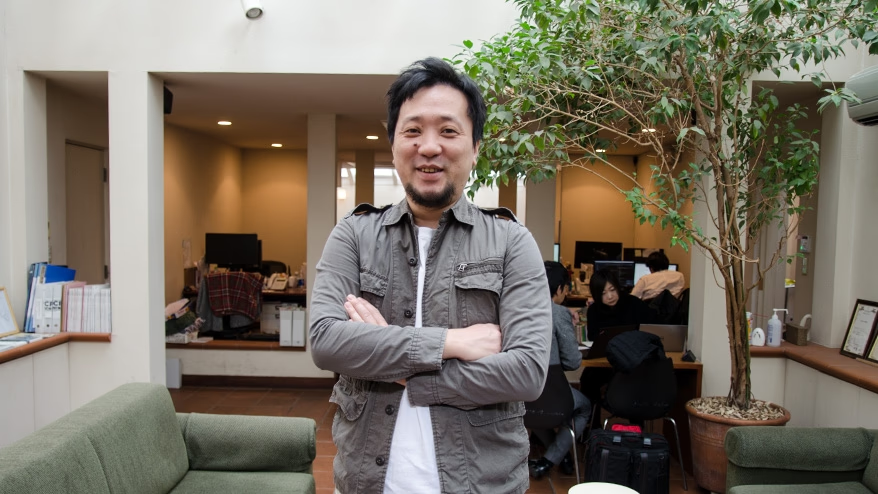This time's guest is Yoichi Kinoshita, who comes to Monosus once a week. He is a member of the Coding Factory Club (CF), and together with the leader Takeda, he works to influence the CF members in various ways.
Takeda says that Kinoshita "gives engineers a sense of stimulation that they don't get inside the company." This time, we asked Kinoshita, who is a mysterious figure even to Monosus staff, about his activities and his own career.
(Interview by Kensaku Saguchi)
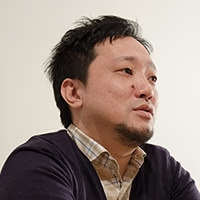
Profile of Yoichi Kinoshita :
After working in systems development for sales and production management at a software company, he went freelance. After that, he worked at a company that designed CPUs and routers, a completely different field. Seven years ago, he established his own company and is currently working as a freelancer (business name: LOOGO). Drawing on his wide-ranging experience in development and system design, he is pioneering the work of an information architect while also supporting users and developers.
I thought maybe there was something I could give to Monosas wherever he was going in the future.
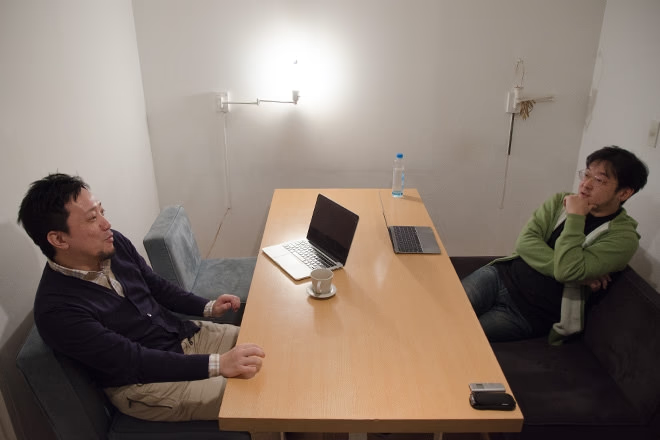
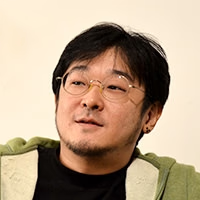 Takeda
TakedaSurprisingly, many of our staff seem to be mysterious about Kinoshita, who comes by once a week, so I'd like to start by telling you how we met and what he does for us.
 Kinoshita
KinoshitaActually, it's not yet clear what I do. So, I can't say "I do XX", so let me start by telling you how I came to be at Monosus.
It all started when you met Takeda through Innovation Tohoku and the Field Hack in Tono. We were the same age, lived close to each other, and had work-related problems, so we were able to exchange solutions. We both liked alcohol, so we got along over drinks, and one day Takeda asked me to support CF on the technical side... That's how it went, right?
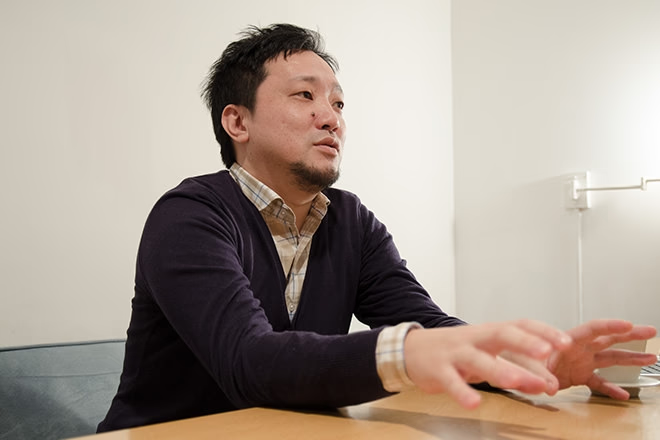
 Takeda
TakedaRight. At first, I thought I would be taught technical things about programming and supported in the technical aspects, but as we talked, I realized that there were many things that were lacking in both CF and Monosus.
I'd like to borrow wisdom from a slightly different layer... For example, from the foundation building part when a coder studies something, and the structure of the organization that supports it. So, for now, I'm still in the process of having them come and explore the situation and get a grasp on it.
 Kinoshita
KinoshitaI thought that maybe the skills and experience I have happened to have coincided with where Monosus is heading in the future. So, when I got to know Mr. Takeda and he invited me, I thought that maybe there was something I could give him.
It's not just about technical matters, but also about how to use those techniques to provide business. I visit once a week as an advisor on such matters and communicate with various people.
Following that flow, if there is something that is currently bothering them in the field, I will directly help them, or I will give a lecture-style talk about how, "Basically, this is how you study," or we will work together to build teams and design how to handle cases.
 Takeda
TakedaI realized a lot more after he came. We've never created an engineering organization before. I don't think we need to fix it because there are many different ideal forms, but Mr. Kinoshita has been involved with a huge number of engineers. He understands the individuality of engineers well and knows how to develop them. After all, there's nothing better than experience, and it's really helpful to have someone I can consult with about that.
At 26 years old, I was completely blown away by the highly educated super engineers at my workplace.
 Kinoshita
KinoshitaSince I was a child, I liked making things, influenced by my father. When I was about 5 years old, we had a toy-like computer at home. But I couldn't buy games for it. When I told my father about my dissatisfaction, he said, "If you can't buy them for me, you should make them yourself" (laughs). I started making simple games when I was about 6 years old.
However, it's not that I'm particularly fond of computers; I've also built a rather impressive house deep in the woods that I call a secret base, and I've also taken apart vacuum cleaners and TVs at a local junkyard, pulled out powerful magnets to make a motor and put it in a Mini 4WD.
I liked making things. My secret base was destroyed by a strange man who told me not to use nails in the woods or the teeth of my chainsaw would chip, and my modified motor caught fire and I got scolded, so it was a rough experience (laughs). But when I got into something, I was a crazy kid. I guess I got absorbed in it.
I went to technical high school and electrical engineering at university, but then dropped out and joined a small software company.
 Takeda
TakedaWhy did you drop out of university?
 Kinoshita
KinoshitaIt may sound childish, but when I entered the school, it was different from what I wanted to do. I wanted to make time bombs and other devices like that, but that was not electronics, it was a different field. I thought I would not be excited if I continued like this, so I quit. I didn't drop out because I wanted to do something, but looking back now, I think it was the right decision.
 Takeda
TakedaAnd then you started developing software?
 Kinoshita
KinoshitaI do something completely different every five years or so.
At the first software company I worked for, we worked in a place equipped with large mainframe computers, the kind of thing you don't see anymore, and we worked with a programming language called COBOL, which is now considered an ancient language.
The company was created by former employees of a major software vendor, and we developed production and sales management systems. I left the company after five years. I worked as a freelance engineer for about half a year, then moved to a different field. I joined a company that designs the inside of CPUs and network routers.
There was a workplace with super highly educated super engineers from Kyoto University and Tokyo University, and I was completely blown away. At that time, I realized that there were many people who were better than me as a programmer, so I would be better off going into management to connect these people, and that there would be a lot I could understand because I was in that kind of world. I was around 26 years old.
 Takeda
TakedaWere you depressed?
 Kinoshita
KinoshitaI was disheartened. I thought I could make it as a programmer. I wondered what to do from here. I lost track of my position in the company, thought and thought, and realized that mathematics was important, so I studied with an executive at the company who had studied mathematics at the University of Tokyo, and he taught me mathematics every week for about two years.
There was no point in feeling down, so I started studying again. There was no other way.
 Takeda
TakedaWhat happens in the next five-year cycle that follows?
 Kinoshita
KinoshitaI started a software development company with an engineer who had amazing technical skills whom I met at my second company. This is when I really started working on web-based systems. I worked on business management systems, fee collection systems, e-commerce sites, and so on.
The engineers I worked with were highly skilled and made amazing things, but the value of those things was hard to convey to the general public. So customers didn't know how much they should pay. So I showed customers a benchmark and told them what was different about our company. I've also worked on translating the stories of amazing people.
People around them said, "These two wouldn't last a year," but they lasted for seven years, eventually disbanding and becoming self-employed.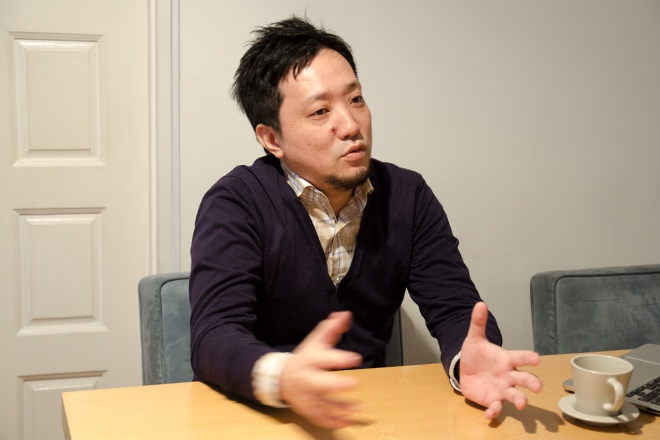
What I've done is common to the vertical axis of computers, but the content of each is very different. It's a career with a wide range. I think that being able to talk to engineers in their 60s and engineers in their 20s has somehow become my characteristic.
I want to help solve problems by rearranging the slope that everyone is desperately trying to climb into a staircase.
 Takeda
TakedaWhat do you plan to tell the engineers at Monosus?
 Kinoshita
KinoshitaMy aim is not to hold people's hands step by step, but rather to get them to think and have questions.
Have doubts, ask questions, and then think about how to use them in the future. I plan to observe how the questions evolve. In the process, I will determine what kind of things this person is suited to, and what kind of preparations are necessary. Engineers cannot grow without the ability to ask questions.
 Takeda
TakedaThe power to ask questions?
 Kinoshita
KinoshitaYes. It's easy to think you understand something. But it's difficult to really use the technology you think you understand. You need a lot of questions, grab people, get them involved, and that mentality and style to grow. That's what I've done, and the great people around me did the same. I want to pass it on as much as I can.
 Takeda
TakedaAt least in my company, there is no one who thinks about things from that perspective, so I would appreciate your help.
 Kinoshita
KinoshitaThey always hit a wall at one point. That's when they realize, "This is a world that you can't understand unless you read the correct textbooks." I want to take them to that wall. And once they get over it, they'll be overtaken in terms of technique in no time.
 Takeda
TakedaWhat is this textbook you just mentioned?
 Kinoshita
KinoshitaIt's nothing special, just a technical book that's sold at a bookstore. Nowadays, you can look up all kinds of information on the internet, but a book is written by one author, right? It's like the world of one god.
It's important to learn there once. The Internet is good for learning a little bit about technology, but it's not systematic, and while you can easily find what you're looking for, you can't find what you're not looking for. On the other hand, when you read a book, you can suddenly come across something you didn't know.
If you understand the basics, you can imagine how to apply them. I want to help people cultivate something within themselves that will feed their imagination and fantasies.
I would also like to teach how to climb stairs and how to adjust to steps.
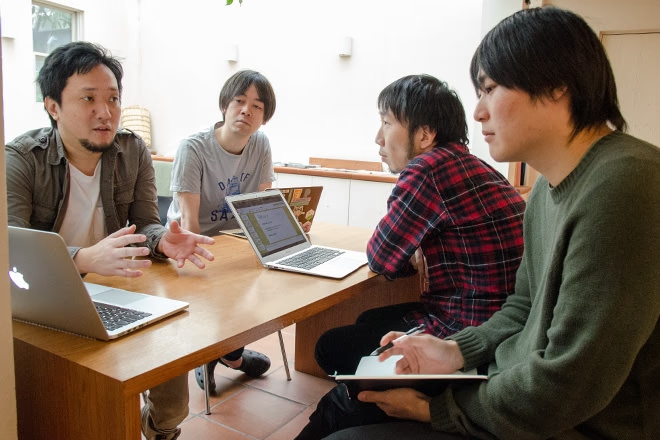
A study session for CF club members
 Takeda
TakedaWhat are stairs?
 Kinoshita
KinoshitaThis is true for both technique and direction, but everyone is desperately trying to climb a slope. But if you make it a staircase, it's much easier to climb. You can move forward one step at a time. I want to convey that feeling.
The same is true when meeting with clients; most of the time, our clients and we are in different industries.
Moreover, the more skilled an engineer is, the more difficult it is for them to communicate with general customers. But if someone steps in between and sorts things out one step at a time, like a staircase, they can come together and understand each other, one step at a time.
 Takeda
TakedaI see.
 Kinoshita
KinoshitaIt's a step of, "Do you understand up to this point?" "Yes, I understand up to this point." If two super engineers are working together, they can probably run up a long hill and understand each other in one go, but that's not usually possible. It's better for someone to adjust the steps and turn them into a staircase. I think that repeating this process is how things take shape.
When I was having drinks with Takeda-san and others the other day, the term "meeting specialist" came up, and it really suited me. I think that if you can create a good staircase, you will also be able to see the boundaries of how far you can go in meetings.
If they can't do that, they'll end up saying, "I don't know. Let me take it home," or they'll spread themselves too thin and get into trouble. We want to raise people who know the boundaries.
 Takeda
TakedaI think we've had meetings, but that's the line. Is it okay to leave it that wide? There are also things like, "We need to expand it a bit more." It's a very important point.
 Kinoshita
KinoshitaI'm the type of person who is interested in solving problems, and although you shouldn't create problems just to solve them, the process of finding a problem is also interesting. The most exciting moment is when I start writing down the problem and the solution by hand on a piece of paper with a client and no computers or electronic devices. Recently, there have been fewer opportunities like that at work.
 Takeda
TakedaWith that said, your involvement with CF is in an interesting experimental stage, isn't it? (laughs)
 Kinoshita
KinoshitaThat's right. It's interesting to explore what works well for you.
 Takeda
TakedaMonosas and CF are blessed with people who are willing to help them despite the many problems they have. They are lucky to have met Kinoshita-san.
 Kinoshita
KinoshitaThe best thing I've done in the past year is to meet Takeda-san and be in this situation. Without him, I would have just been doing my daily work. If I just do what I can provide technically, I can make money.
However, visiting Monosus once a week and thinking hard about what I can produce has given me positive feedback. I'm glad I found it.
 Takeda
Takedathank you.
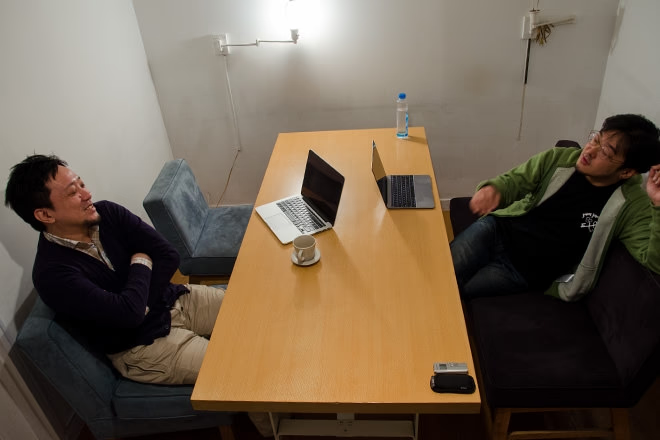
After the interview
I'm honestly glad that I had the opportunity to do this interview and that what we've talked about and heard so far is recorded in writing.
CF members often go out drinking with Kinoshita-san,
What has Kinoshita-san done so far?
Some members don’t know the background,
To the members who will be joining us in the future and the Monosus members who will be involved in the future, not just in CF,
I think this was a good article to help people get to know Kinoshita.It's only been three months since you came to Monosus,
I learned things I had never thought of before and gained deeper knowledge.
Not only the members but I too am greatly inspired by them.He said, "The purpose is to make people think and have questions," and it's true that when you ask Kinoshita a question, he responds with a question.
It also made us think more about the subject.
From next fiscal year onwards, I would like to ask for more cooperation on projects.
I will be following Kinoshita-san's example and stealing his good points.
thank you!!Let's go to Thailand again!
Kenichi Takeda
